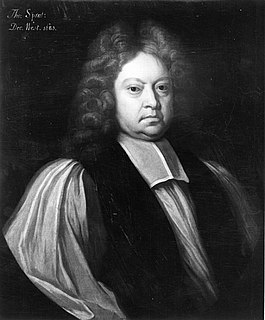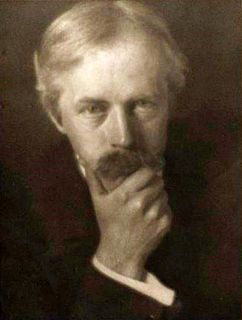A Quote by Thomas Sprat
They have never affirm'd any thing, concerning the cause, till the trial was past: whereas, to do it before, is a most venomous thing in the making of Sciences: for whoever has fix'd on his Cause, before he has experimented; can hardly avoid fitting his Experiment, and his Observations, to his Own Cause, which he had before imagin'd; rather than the Cause to the Truth of the Experiment itself. Referring to experiments of the Aristotelian mode, whereby a preconceived truth would be illustrated merely to convince people of the validity of the original thought.
Quote Topics
Affirm
Any
Avoid
Before
Cause
Concerning
Convince
Experiment
Experiments
Fitting
Fix
Had
Hardly
His
His Ex
Illustrated
Itself
Making
Merely
Mode
Most
Never
Observations
Original
Original Thought
Own
Past
People
Preconceived
Rather
Referring
Sciences
Than
Thing
Thought
Till
Trial
Truth
Validity
Venomous
Whereas
Which
Whoever
Would
Would Be
Related Quotes
I wrote a letter to our Australian newspaper about three weeks before the invasion and I said, "Osama bin Laden must be on his knees morning and night praying to Allah that the Americans will invade." And, of course, he was, because nothing more advanced his cause - the cause of terrorism - than the invasion of Iraq. It was an absurdity.
There is a thinking stuff from which all things are made, and which, in its original state, permeates, and fills the inter spaces of the universe.
A thought in this substance, Produces the thing that is imaged by the thought.
Man can form things in his thought, and by impressing his thought upon formless substance, can cause the thing he thinks about to be created.
Do not use your energy except for a cause more noble than yourself. Such a cause cannot be found except in Almighty God Himself: to preach the truth, to defend womanhood, to repel humiliation which your Creator has not imposed upon you, to help the oppressed. Anyone who uses his energy for the sake of the vanities of the world is like someone who exchanges gemstones for gravel. There is no nobility in anyone who lacks faith. The wise man knows that the only fitting price for his soul is a place in Paradise.
One should not wrongly reify 'cause' and 'effect,' as the natural scientists do (and whoever, like them, now 'naturalizes' in his thinking), according to the prevailing mechanical doltishness which makes the cause press and push until it 'effects' its end; one should use 'cause' and 'effect' only as pure concepts, that is to say, as conventional fictions for the purpose of designation and communication-not for explanation.




































